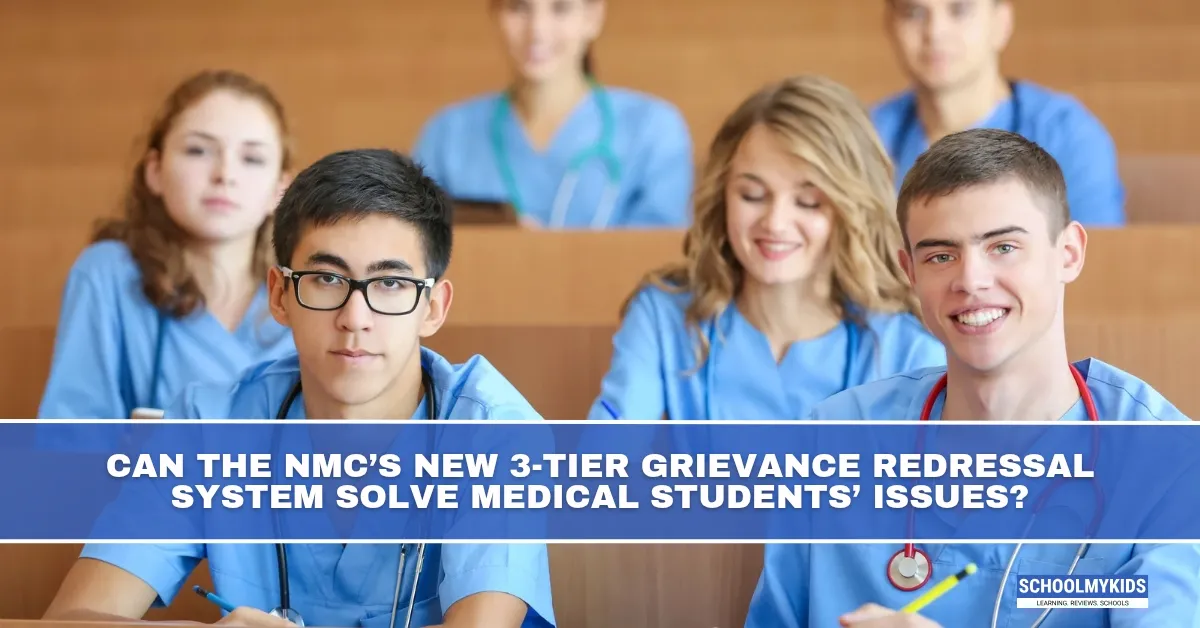Introduction
Medical students in India have long faced challenges related to academics, college management, safety, and financial matters. To address these growing concerns, the National Medical Commission (NMC) has introduced a structured three-tier grievance redressal mechanism. This system is designed to ensure that students have a clear, step-by-step process to raise and resolve their issues.
What Problems Are Being Addressed?
Students across the country have reported several common issues:
- High or hidden college fees
- Delayed or unpaid stipends during internships
- Instances of ragging or harassment
- Poor infrastructure or unsafe living conditions
- Inadequate academic support or unfair evaluation
- Conflicts with faculty or administrative staff
Such problems, if left unaddressed, can affect not just a student’s education but also their mental well-being and professional future.
How the 3-Tier System Works
1. College Level
Every medical college must now set up its own Grievance Redressal Committee (GRC). Students are expected to first submit their complaints here. This committee is responsible for investigating the issue and taking appropriate action within a reasonable time.
2. University Level
If a student is not satisfied with the college’s response, the complaint can be escalated to the university with which the college is affiliated. The university-level committee will then review the matter and attempt to resolve it fairly.
3. State Level Authorities
If the university fails to provide a satisfactory resolution, the complaint can be taken to the state’s Directorate of Medical Education or Health Department. These bodies are responsible for overseeing all medical colleges in the state and are expected to handle unresolved cases with urgency.
Additionally, if none of these levels resolve the issue, students can take their complaint to the National Medical Commission as the final authority.
How It Will Be Implemented
To ensure transparency:
- All colleges and universities must clearly display the details of their grievance committees on their official websites.
- They are required to offer online platforms or forms for students to register complaints easily.
- Records of every complaint and its resolution must be maintained for accountability.
The NMC has also created its own online system for students to submit grievances that have not been resolved at the earlier levels.
Why This Step Matters
This mechanism is important because it:
- Gives students a structured and fair way to voice their problems
- Reduces fear of retaliation by allowing escalation
- Encourages colleges to be more responsive and accountable
- Helps authorities identify recurring problems and improve policy
What Challenges Might Arise
While this system is a positive move, its success depends on proper implementation. There are concerns about whether all colleges and universities will follow the rules strictly. Timely response and genuine resolution will be key. Also, students must be made aware of their rights and the steps they can take when they face issues.
Conclusion
The new three-tier grievance redressal system introduced by the NMC offers hope for medical students seeking fairness and accountability. If implemented sincerely, it can help build a more supportive and responsive environment in medical education. However, its real impact will depend on how well each level—college, university, and state—performs its role in protecting student interests.








Be the first one to comment on this story.